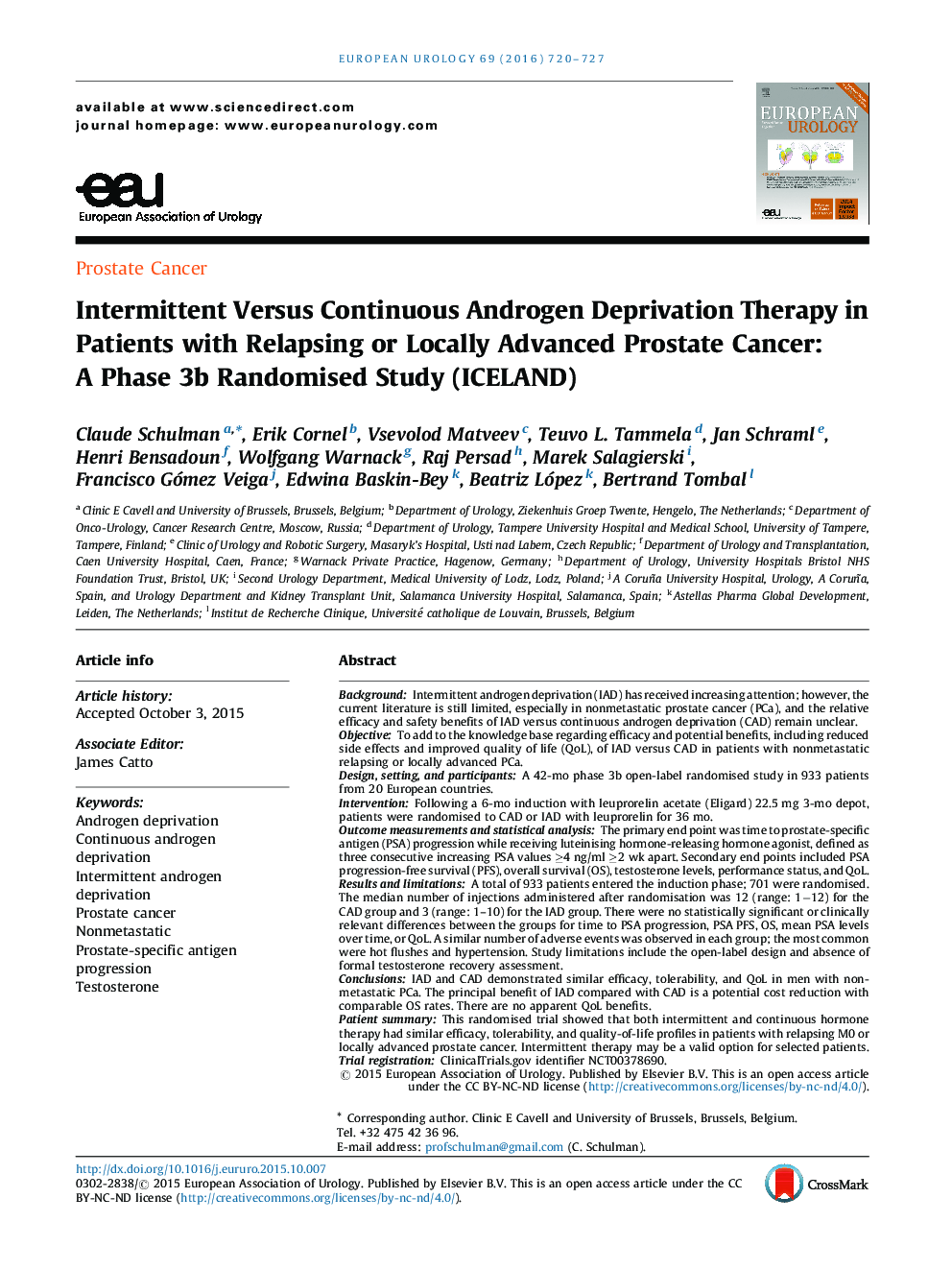| Article ID | Journal | Published Year | Pages | File Type |
|---|---|---|---|---|
| 6177553 | European Urology | 2016 | 8 Pages |
BackgroundIntermittent androgen deprivation (IAD) has received increasing attention; however, the current literature is still limited, especially in nonmetastatic prostate cancer (PCa), and the relative efficacy and safety benefits of IAD versus continuous androgen deprivation (CAD) remain unclear.ObjectiveTo add to the knowledge base regarding efficacy and potential benefits, including reduced side effects and improved quality of life (QoL), of IAD versus CAD in patients with nonmetastatic relapsing or locally advanced PCa.Design, setting, and participantsA 42-mo phase 3b open-label randomised study in 933 patients from 20 European countries.InterventionFollowing a 6-mo induction with leuprorelin acetate (Eligard) 22.5 mg 3-mo depot, patients were randomised to CAD or IAD with leuprorelin for 36 mo.Outcome measurements and statistical analysisThe primary end point was time to prostate-specific antigen (PSA) progression while receiving luteinising hormone-releasing hormone agonist, defined as three consecutive increasing PSA values â¥4 ng/ml â¥2 wk apart. Secondary end points included PSA progression-free survival (PFS), overall survival (OS), testosterone levels, performance status, and QoL.Results and limitationsA total of 933 patients entered the induction phase; 701 were randomised. The median number of injections administered after randomisation was 12 (range: 1â12) for the CAD group and 3 (range: 1-10) for the IAD group. There were no statistically significant or clinically relevant differences between the groups for time to PSA progression, PSA PFS, OS, mean PSA levels over time, or QoL. A similar number of adverse events was observed in each group; the most common were hot flushes and hypertension. Study limitations include the open-label design and absence of formal testosterone recovery assessment.ConclusionsIAD and CAD demonstrated similar efficacy, tolerability, and QoL in men with nonmetastatic PCa. The principal benefit of IAD compared with CAD is a potential cost reduction with comparable OS rates. There are no apparent QoL benefits.Patient summaryThis randomised trial showed that both intermittent and continuous hormone therapy had similar efficacy, tolerability, and quality-of-life profiles in patients with relapsing M0 or locally advanced prostate cancer. Intermittent therapy may be a valid option for selected patients.Trial registrationClinicalTrials.gov identifier NCT00378690.
